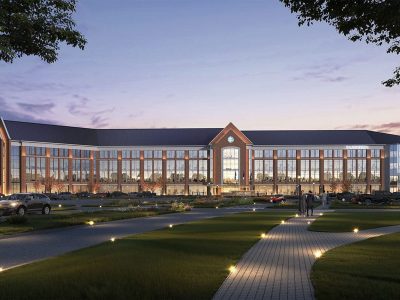In a region best known for tourism, healthcare, and military presence, a quiet but important shift is taking place in Rapid City’s business landscape: the steady rise of homegrown tech and innovation-based startups. That shift was on full display July 9, as five early-stage companies graduated from Wildfire Labs, an accelerator program designed to turn promising ideas into real businesses.
Hosted at the David Lust Accelerator Building (DLAB), the event marked more than a ceremonial milestone. It was a clear signal that Rapid City’s efforts to build a stronger entrepreneurial ecosystem are starting to bear fruit—and may play a vital role in retaining local talent, creating high-paying jobs, and diversifying the regional economy for the long term.
“These companies aren’t just building apps or websites—they’re solving problems in major industries like construction, aviation, and agriculture,” said Mike Vetter, co-founder of Wildfire Labs. “And they’re doing it from right here in western South Dakota.”
Meet the Graduates: Local Startups with Big Potential
Each of the five startups completed a six-month accelerator program focused on customer research, product development, and early sales. Their business models are varied, but all are aimed at solving real-world challenges:
- Adrenaline Analytics, founded by Chris King, is creating performance analytics software for the motocross industry, helping riders and teams better understand their data.
- CATL Resources, led by Chandy Olson, is streamlining livestock record management for veterinarians and producers, bringing efficiency to a traditionally paper-heavy sector.
- Do Good, founded by Tamara Morrow, enables churches to purchase and forgive medical debt—helping local families avoid long-term financial hardship.
- Jet Set Go, from founders Jeremy Johnson and Ryan Rankin, is offering a new approach to on-demand private aviation, giving users more accessible flight options.
- Plenty of Hires, created by Corinne Perkins, is developing smarter hiring software for the construction industry, focusing on employee retention and team fit.
These are not side hustles or hobby projects. Each company has identified a target market, built a functioning product, and landed early adopters or paying customers. Several plan to grow their teams and pursue outside investment.
A Pipeline for Growth, Not Just Launch
Graduation from Wildfire Labs is just the beginning. Two companies recognized at the event—Driven Fire Consultants and Zinvent—are examples of what’s possible when local startups are given time, space, and mentorship to scale.
- Driven Fire, a fire sprinkler design and consulting firm, began with a single employee and is now expanding into its own facility with a five-person team.
- Zinvent, which designs fish-friendly water intake screens, has moved from local pilot programs to federal contracts and is now exploring international expansion.
Both were tenants in the DLAB incubator, the next phase of Elevate Rapid City’s startup support pipeline. “We’ve built a space where companies can start small, grow steadily, and stay rooted in the community,” said Tom Johnson, President & CEO of Elevate Rapid City.
Lowering Barriers to Innovation
To continue supporting this pipeline, Elevate also announced the launch of a new AI MicroGrant program during the event. Businesses based within Rapid City can apply for grants of up to $3,000 to adopt or integrate artificial intelligence.
The grant is designed for small businesses that may not have the budget to experiment with emerging technology. “AI isn’t just for big tech companies—it’s a tool that small businesses here can use to be more competitive,” said Johnson.
A Milestone Worth Watching
While Rapid City continues to established itself as a tech hub, programs like Wildfire Labs, DLAB, and the AI MicroGrant initiative are laying the groundwork for long-term economic transformation. Supporting scalable, high-value businesses means more than just innovation—it means future jobs that pay well, attract talent, and strengthen the local economy.
These seven startups represent something larger than themselves: the potential of a community investing in its own builders, thinkers, and risk-takers.
If Rapid City is to grow a modern, resilient economy, supporting entrepreneurship isn’t a side strategy—it’s essential. This graduation is more than a feel-good moment; it’s a signal that a new kind of economy is taking root in the Black Hills—one built on ideas, innovation, and local ownership. And it’s just getting started.


